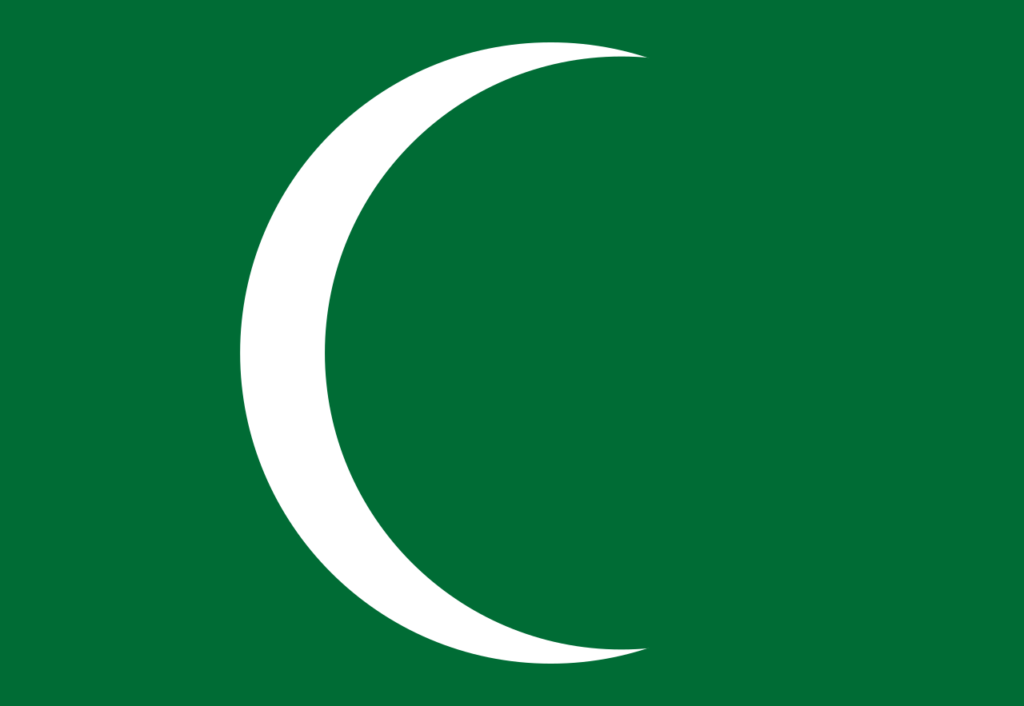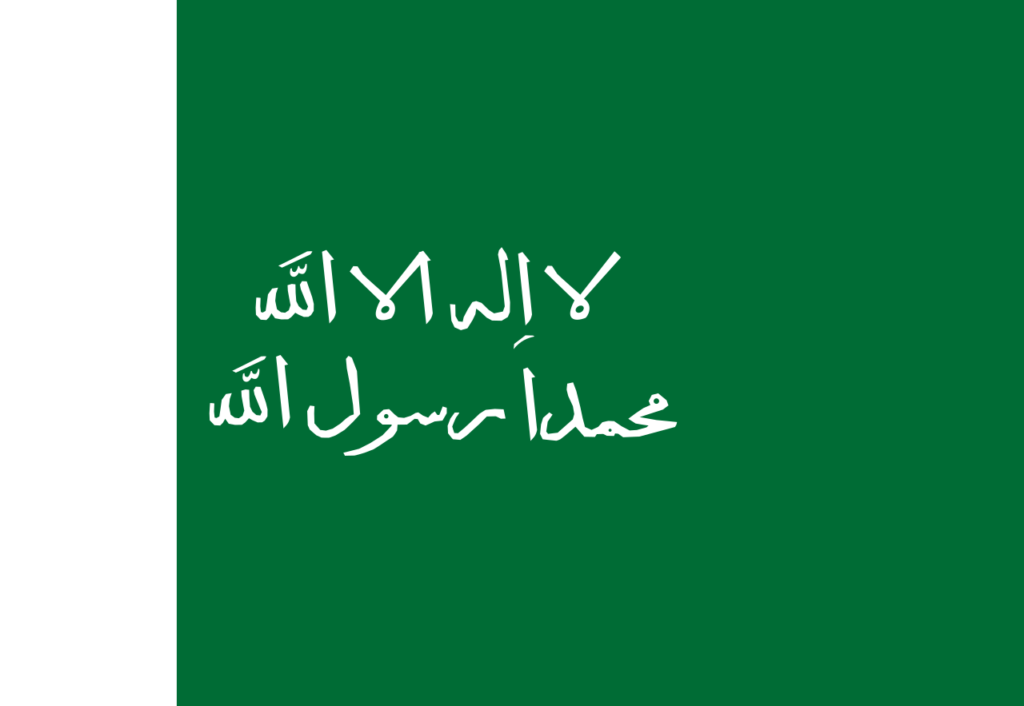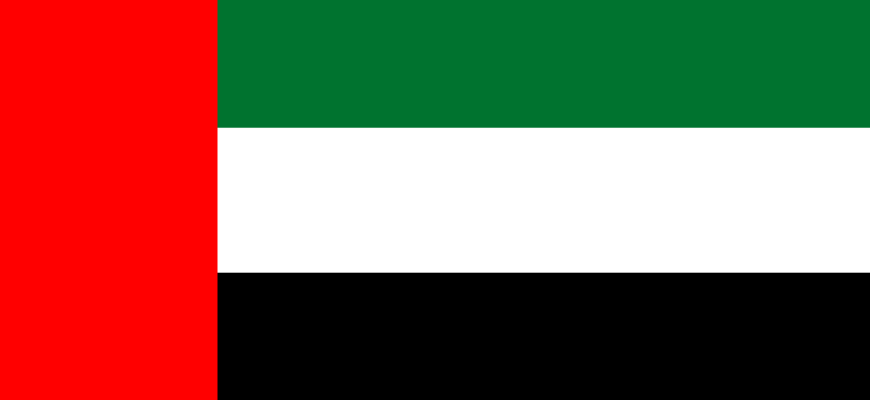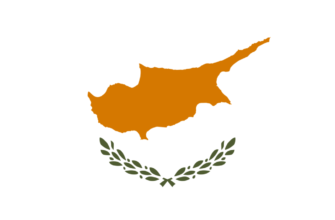The UAE is a federal Middle Eastern state with a relatively young symbol, which was created at the end of the last century.
This is what the modern flag of the UAE looks like:

History of the flag
The Emirate of Diri was the first state to occupy the present-day territory of the UAE. It had its own symbol — a green flag with a white crescent. It existed from 1744 to 1818.

Emirates of Nejd — The Second Saudi State is another territorial unit that existed from 1818 to 1891. The colors of the symbol are identical to those of Diri, the inscription is on a monochrome background.

Treaty Oman is the latest predecessor of the United Arab Emirates. The flag has a central, wider, horizontal stripe of white with a seven-pointed star and narrower red stripes along the edges.

The modern form of the state symbol was adopted in 1971. It was selected among more than a thousand entries. Abdullah Al-Maanah, a nineteen-year-old young man, was the winner.
The creator of the flag is now the UAE ambassador to the Czech Republic.
The flag may be flipped, but in this case the red stripe must be at the top, and in no other way, the other position is not allowed.
Description
It is a flag with three horizontal stripes and one vertical strip, located on the left side of them, at the flagstaff. The width of the vertical is a quarter of the width of the whole flag, the horizontal stripes are equal to each other.
National Flag Day was established in 2013 and has been celebrated on the third of November every year since.
Flag colors
Executed in pan-Arabic colors: black, white, green, red.
These colors originally symbolized the Arab Revolution, the struggle against Ottoman rule that began in 1916.
Meaning of colors and flag symbol
All four colors together signify the unity of the Arab states. However, their first mention was long before the Arab Revolt, back in the fourteenth century.
Red: in the fourteenth century, the blood of enemies. Later — the Ottoman Empire and the Hashemites. Today — the unity of the seven emirates, perseverance and courage. Considered to be the main one on the flag.
Black: in the 14th century — strength and valor. Later — the memory of the Prophet Muhammad (this was the color of his symbol) and the Righteous Caliphate. Today — reason.
White: in the 14th century — righteous and pious deeds. Later — the Umayyad Caliphate. Today — purity.
Green: in the 14th century, fertile lands. Later, the Fatimid Caliphate. Today — wealth and love.
There is a misconception that black represents oil, the main mineral extracted in the UAE. However, at the time when the flag was created, no one even suspected what the discovery of oil deposits would lead to — people did not hope for untold wealth, so no one gave great importance to oil, and certainly no one was going to make it part of one of the main state symbols.
Other Flags
Presidential: differs only in that on the central horizontal stripe is the coat of arms of the state. It is used only in the presence of the President.
Civil: used by civil courts. A red cloth with the national flag in a white frame in the upper left corner.
The seven emirates also have their own symbols.
Dubai and Ajman: the same symbols are red with a white vertical stripe at the stem.

Sharjah and Ras Al Khaimah: also identical — white with a red rectangle inside.

Abu Dhabi: red with a white horizontal stripe at the staff.

Umm al-Qaywain: red with a white vertical stripe along the left edge, in the center a crescent moon and a star of the same color.

El Fujairah: repeats the national flag.
Like all Arab states, the UAE uses traditional colors in its flag, but this does not prevent it from standing out.
General information about the UAE
| Official language | Arabic |
| Capital | Abu Dhabi |
| Territory | 83 600 km² |
| Population | 9 771 000 people |
| Currency | UAE dirham (AED, code 784) |
| Phone Code | +971 |










Я помню, как впервые увидел флаг ОАЭ на празднике. Он такой яркий и символичный! Это было в Дубае, и все вокруг следили за парадом. Флаг действительно объединяет людей и создает атмосферу праздника. Невероятные ощущения!
Steven: Абсолютно согласен! Как-то на выставке в Абу-Даби тоже почувствовал этот подъем и гордость, когда взвился флаг. Это реально мощный символ, который сближает всех, несмотря на разницу в культурах и языках. Такой момент запоминается надолго!
I remember visiting the UAE during their National Day celebrations. The streets were filled with the vibrant colors of the flag, and everyone was so proud. It was amazing to see how much the locals loved their country. That experience really opened my eyes to the culture there.
I remember visiting the UAE and seeing the flag proudly displayed everywhere. It was a vibrant experience during National Day celebrations. The colors really represented unity and pride. I even got a small flag to keep as a souvenir! It’s amazing how a symbol can bring people together.
I remember the first time I saw the UAE flag flying high during a festival. It filled me with pride! The colors symbolize unity and strength. It reminded me of the warmth and hospitality of the people here. Truly, it’s a symbol of our rich culture and heritage!
As a guy who’s traveled a lot, I gotta say, the UAE flag always caught my eye. When I visited Dubai, locals explained how the colors represent unity and strength—it stuck with me. It’s more than just a flag; it’s a cool symbol of pride and progress.